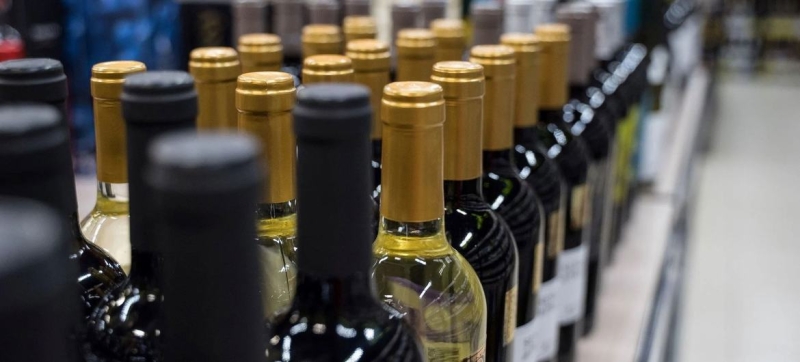- India Sees 9% Drop in Foreign Tourists as Bangladesh Visits Plunge |
- Dhaka Urges Restraint in Pakistan-Afghan War |
- Guterres Urges Action on Safe Migration Pact |
- OpenAI Raises $110B in Amazon-Led Funding |
- Puppet show enchants Children as Boi Mela comes alive on day 2 |
Alcohol Raises Pancreatic Cancer Risk, UN Study Finds

Wine bottles on a supermarket shelf. WHO/Alex Plonsky
A comprehensive new study led by the United Nations World Health Organization’s International Agency for Research on Cancer (IARC) has found a clear link between alcohol consumption—particularly beer and spirits—and a higher risk of developing pancreatic cancer. This large-scale research pooled data from nearly 2.5 million individuals across multiple continents including Asia, Australia, Europe, and North America, offering the most extensive analysis to date on this association.
The findings highlight a “modest but significant” correlation between alcohol intake and pancreatic cancer risk, independent of gender or whether the individual smokes tobacco. This challenges previous uncertainty, as alcohol had long been recognized as a carcinogen but its specific impact on pancreatic cancer remained inconclusive.
Pietro Ferrari, the senior author of the study and Head of the Nutrition and Metabolism Branch at IARC, explained: “While alcohol has been identified as a carcinogen, until now the evidence connecting it directly to pancreatic cancer was limited. Our analysis demonstrates that alcohol consumption alone can increase the risk, regardless of smoking habits.”
The pancreas is a vital organ that performs dual functions: producing enzymes necessary for digestion and regulating blood sugar through hormone secretion. Pancreatic cancer is notoriously difficult to detect early and often carries a grim prognosis, making it one of the deadliest forms of cancer worldwide.
According to the study, each additional 10 grams of alcohol consumed daily—a quantity roughly equivalent to one standard drink—correlates with a 3% increase in pancreatic cancer risk. For women, consuming 15 to 30 grams of alcohol per day, approximately one to two drinks, raises the risk by 12% compared to light drinkers. Among men, drinking between 30 to 60 grams daily increases risk by 15%, while heavy drinkers consuming over 60 grams per day face a 36% higher likelihood of developing the disease.
One important aspect of the study was the careful consideration of tobacco use, as alcohol and smoking are often consumed together. The researchers found that even among non-smokers, alcohol consumption independently elevated pancreatic cancer risk. This finding is critical because it underscores alcohol itself as a standalone risk factor.
Ferrari stressed the need for additional research to explore the nuances of alcohol consumption over a lifetime, including the effects of drinking patterns such as binge drinking and early-life exposure to alcohol. Understanding these patterns could provide clearer guidance for public health policies and cancer prevention strategies.
Globally, pancreatic cancer is the twelfth most common cancer but disproportionately lethal, accounting for approximately 5% of all cancer-related deaths. The study also noted geographical disparities: in 2022, incidence and mortality rates of pancreatic cancer were up to five times higher in regions such as Europe, North America, Australia, New Zealand, and Eastern Asia compared to other parts of the world.
This new evidence from the WHO’s cancer research centre reinforces the importance of public awareness around alcohol’s health risks and the urgent need for preventive measures to reduce pancreatic cancer’s burden worldwide.

